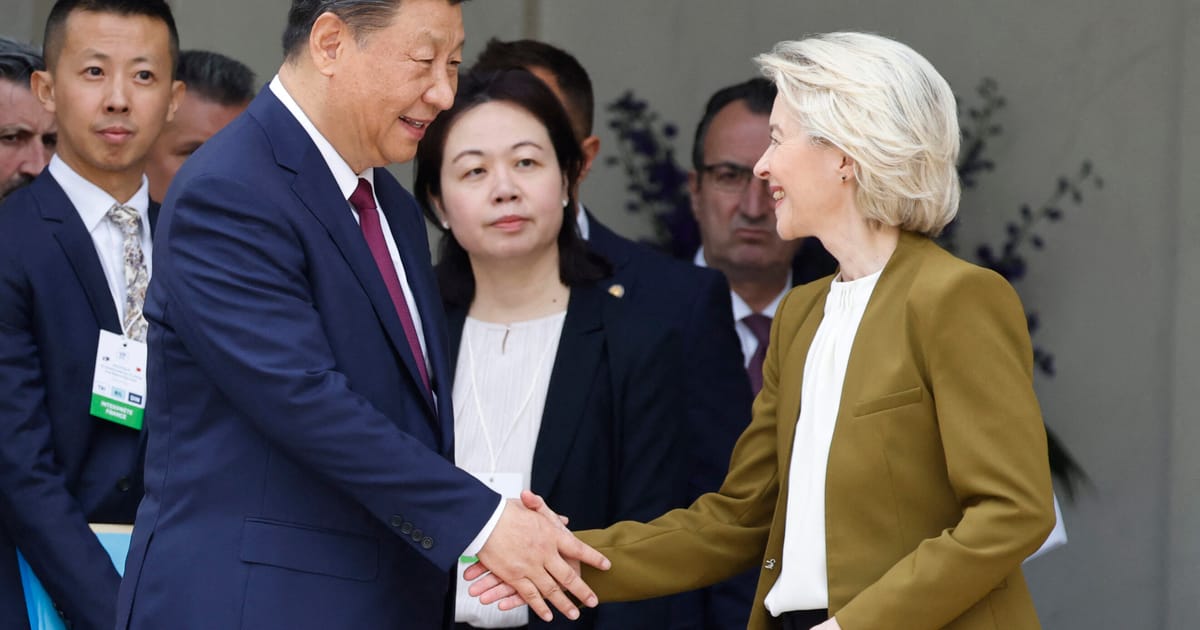But it also reflects the growing dependence, until 2022, on energy imports from Russia. The EU has sharply reduced its supply of Russian gas and oil since the Kremlin’s invasion of Ukraine in 2022, but largely by striking deals with other authoritarian countries such as Qatar and Algeria, said Heather Grabbe, senior fellow at economic think tank Bruegel.
The EU’s ability to spread its values in the world through commerce failed spectacularly in the case of Russia, but has in any case faded in recent years as its economy has stagnated. Europe’s share of global economic output was over 25 percent in 2004, but was only 13.4 percent last year, and is projected to fall further in the coming years.
“The EU must be aware of its limits. It risks overplaying its hand,” said Gabriel Felbermayr, president of the Austrian Institute of Economic Research (WIFO). “The world is changing, and the influence that the EU still has today is decreasing year by year.”
